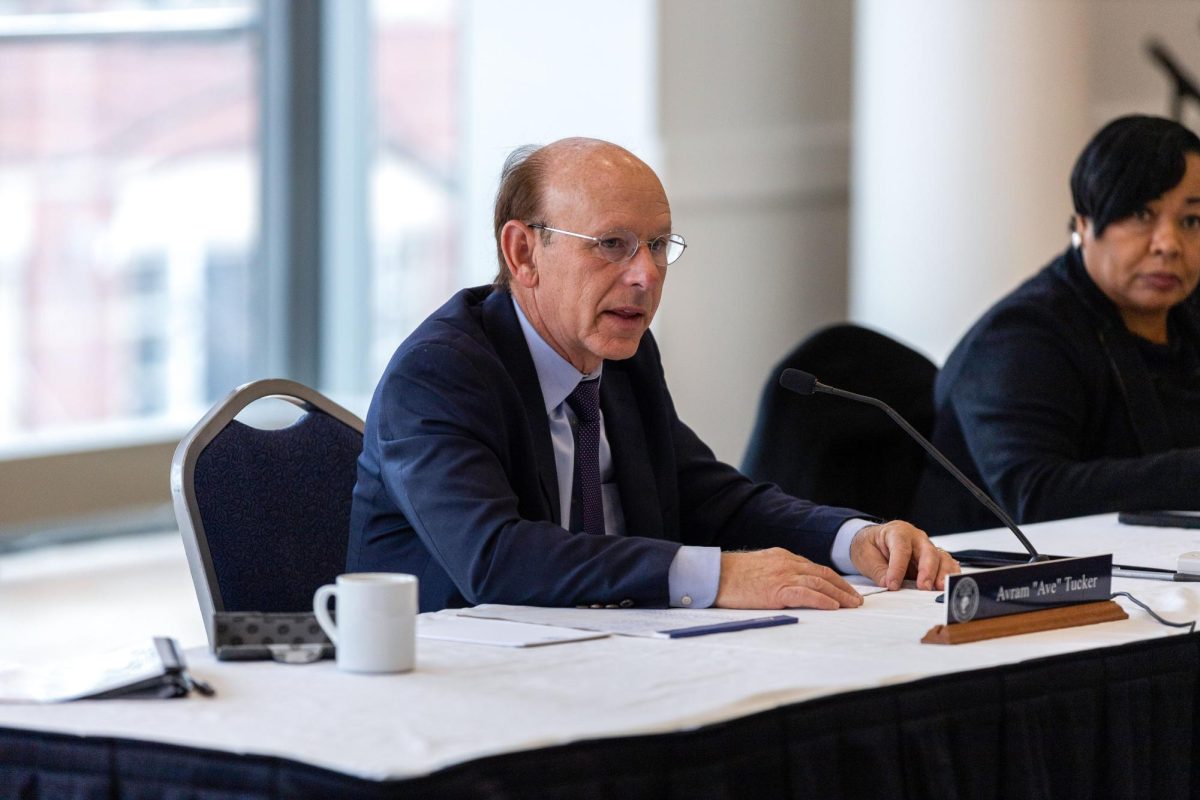The Board of Trustees reported that GW’s endowment increased to $2.6 billion by the end of the calendar year, the highest value in University history.
Secretary Avram Tucker said at a Board meeting Friday that the endowment, a financial foundation composed of real estate, investments and donations, rose from $2.5 billion at the end of fiscal year 2023 to $2.6 billion by Dec. 31, 2023. He said the University’s finances are “strong” despite inflation and “challenges” in the medical enterprise, which has lost $80 million in each of the past two fiscal years.
“We’re in strong financial shape, both our real estate portfolio and our other investments,” Tucker said at the meeting.
An increase in endowment signifies a larger pool for endowed professorships, scholarships, research and facilities. Some endowment funds are restricted to what donors want the funds to be used for.
The Medical Faculty Associates — a group of physicians who teach at the School of Medicine and Health Sciences who helm GW’s academic medical enterprise — has accumulated about $200 million in debt as of October. Chief Financial Officer Bruno Fernandes in October did not specify when he expects the organization to break even.
Alumni Association President Maxwell Gocala-Nguyen said for the first time in recent years, all Alumni Association executive committee members have donated to the University. He said GW has almost 10,500 donors — 300 more than the number of donors at last year’s winter Board meeting.
He said the Office of Development and Alumni Relations has raised $8.1 million of its $12.9 million goal for FY2024. For comparison, former Alumni Association President Will Alexander III said at last February’s meeting that officials had raised $8 million of their $13.5 million goal in FY2023 and had 11,000 donors out of their 18,500 donor goal.
Gocala-Nguyen said officials are “on track” to have the most successful year for the President’s Fund for Excellence in five years. He said this year’s Giving Day will be from April 3 at noon to April 4 at noon, and he hopes to exceed last year’s record-breaking donor count of nearly 3,200 donors.
“The GW donor community is very excited for President Granberg and the start of her tenure and making sure that she is successful and leading our institution to new heights,” Gocala-Nguyen said.
He said he scheduled 10 Revolutionary Roundtable meetings with alumni to maintain and bolster alumni engagement. He said the Alumni Association launched a webpage for the roundtables so all alumni can participate.
“Overall, it’s an initiative to engage, listen and support members of our community that either are not currently engaged with the institution or are super engaged, but really not making sure that they’re giving a philanthropic effort to GW,” Gocala-Nguyen said.
Staff Council President Bridget Schwartz, who gave the first Staff Council report to the Board since its creation last year, said the council’s priorities include advocating for salaries that ensure staff can afford the D.C. cost of living and transparency in University budgeting.
“Today marks a milestone for the council and for staff,” Schwartz said.
Madeleine Jacobs, a trustee and the chair of the Board’s Committee on Academic Affairs, said fall 2024 applicants are “on track” to meet “targets.” She said graduate applications are up 10 to 15 percent from last year.
Officials launched the Rev Up campaign in the fall to advertise GW’s graduate programs after graduate enrollment fell from 15,821 graduate students in 2017 to 14,383 in 2022.
Board Chair Grace Speights said the Board has “strong support” for University President Ellen Granberg and Provost Chris Bracey’s plan to support the GW community and reestablish guidelines for free speech following student ire over the suspension of Students for Justice in Palestine at GWU, which led some students to accuse officials of silencing pro-Palestinian voices. Granberg and Bracey released a plan to review the Code of Student Conduct, offer educational programming for handling university life during times of conflict and support for those affected by the Israel-Hamas war.
“We know that reinforcing these principles amidst the issues we face can be challenging, but I have great faith in the GW community,” Speights said at the meeting.
Student Government Association President Arielle Geismar said students, faculty and staff feel that administrators do not hear their requests due to a lack of voting representation on the Board. In November, the Board rejected the Student Empowerment Act, which requested the addition of the SGA president and vice president as voting members in Board meetings and committee sessions.
She said prospective students are more attuned than in previous years to officials’ responses to students during campus crises, like the war in the Gaza Strip, and will feel discouraged from attending GW if they feel unrepresented in decision-making.
She said officials must listen to students, faculty and staff if they want GW to be a University that upholds equality and justice. She said student leaders met with trustees Thursday night and requested for regular meetings between a council of student leaders and the Board.
“GW must be on the right side of history by taking a stance engaging with stakeholders in ways that aren’t conventional,” Geismar said.
At the meeting, trustees also approved a request from Geismar to rename the Student Association to the Student Government Association because of the “SA” abbreviation’s connotations to sexual assault and a Nazi paramilitary organization.
Grace Chinowsky, Hannah Marr and Sophie Lhert contributed reporting.





